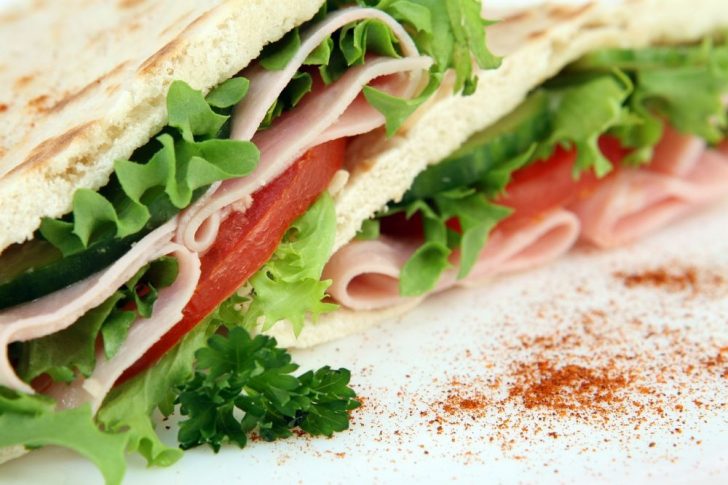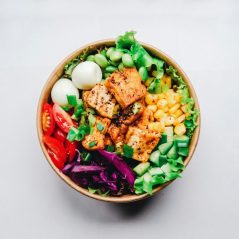Keto Diet Vegan: A Comprehensive Guide to a High-Quality Plant-Based Diet

Introduction:
In recent years, the keto diet has gained significant popularity for its potential health benefits and weight loss results. However, for individuals who follow a vegan lifestyle, traditional keto diets can be challenging to adopt due to the emphasis on animal products. This article will provide an in-depth overview of the keto diet vegan, including its definition, types, popularity, quantitative measurements, differences between various keto diet vegan approaches, and a historical review of its pros and cons.
I. What is Keto Diet Vegan?
The keto diet vegan, also known as the vegan ketogenic diet, is a plant-based eating plan that combines the principles of a vegan diet, which excludes all animal products, with the principles of a ketogenic diet, which involves consuming high-fat, moderate-protein, and low-carbohydrate foods. The main goal of this diet is to induce a state of ketosis, where the body burns fat for fuel instead of carbohydrates.
II. Types and Popularity:

a. Standard Vegan Keto Diet:
The standard vegan keto diet primarily focuses on consuming healthy fats, such as avocados, nuts, and coconut oil, while limiting carbohydrate intake. It encourages obtaining protein from plant-based sources like tofu, tempeh, and legumes.
b. High-Protein Vegan Keto Diet:
The high-protein vegan keto diet emphasizes increasing protein intake while maintaining low carbohydrate consumption. This type of diet often incorporates protein-rich foods like seitan, hemp seeds, and pea protein powder.
c. Raw Vegan Keto Diet:
The raw vegan keto diet combines the principles of raw veganism, in which all foods consumed are uncooked and unprocessed, with the keto diet approach. This diet promotes the intake of raw, plant-based fats and proteins, such as raw nuts, seeds, and sprouted grains.
Quantitative Measurements:
To ensure the body enters and maintains a state of ketosis, individuals following a keto diet vegan must carefully monitor their macronutrient ratios. Typically, a keto diet vegan consists of around 70-75% of calories from healthy fats, 20% from plant-based proteins, and only 5-10% from carbohydrates. It is essential to track daily food intake and measure ketone levels using urine or blood tests.
III. Differences Between Keto Diet Vegan Approaches:
While all keto diet vegan approaches share the main goal of achieving ketosis, there are variations in macronutrient ratios and food choices. Some diets may prioritize certain plant-based proteins or fats, whereas others may focus on specific types of low-carb vegetables. It is crucial to find an approach that suits individual preferences and dietary needs.
IV. Historical Review of Pros and Cons:
a. Pros:
– Potential for weight loss and improved body composition.
– Increased satiety due to high-fat, adequate protein intake.
– Potential improvements in insulin sensitivity and blood sugar control.
– Reduced inflammation levels and improved markers of heart health.
b. Cons:
– Limited food choices and potential nutrient deficiencies, especially in vitamins B12, iron, and omega-3 fatty acids.
– Difficulty in maintaining ketosis due to carbohydrate restrictions.
– Potential for gastrointestinal discomfort and constipation.
– Limited research on long-term effects and sustainability.
Conclusion:
The keto diet vegan offers a plant-based alternative to the traditional ketogenic diet, accommodating individuals who follow vegan lifestyles. While the diet can be effective for weight loss and may provide certain health benefits, it requires careful planning to ensure nutrient adequacy and sustainable ketosis. As with any dietary approach, consultation with a healthcare professional or registered dietitian is recommended to tailor the keto diet vegan to individual needs and goals.
[INSERT VIDEO HERE: A video showcasing delicious and nutritious vegan keto meal ideas, cooking techniques, and expert tips for success.]
FAQ
How can I measure if I'm in ketosis on a keto diet vegan?
What are the potential pros and cons of a keto diet vegan?
What is the keto diet vegan?
Fler nyheter
Tandtekniker i Stockholm: En guide till professionella tandvårdsalternativ
Introduction: In recent years, the keto diet has gained significant popularity for its potential health benefits and weight loss results. However, for individuals who follow a vegan lifestyle, traditional keto diets can be challenging to adopt due to...
Maja Bergman Lindberg
08 april 2024
Hitta en bra optiker i Örnsköldsvik
Introduction: In recent years, the keto diet has gained significant popularity for its potential health benefits and weight loss results. However, for individuals who follow a vegan lifestyle, traditional keto diets can be challenging to adopt due to...
Maja Bergman Lindberg
05 april 2024
Osteopati i Stockholm – väg till ett smärtfritt liv
Introduction: In recent years, the keto diet has gained significant popularity for its potential health benefits and weight loss results. However, for individuals who follow a vegan lifestyle, traditional keto diets can be challenging to adopt due to...
Lotta Alberius
04 april 2024
Från välmående till topprestation med en hälsocoach
Introduction: In recent years, the keto diet has gained significant popularity for its potential health benefits and weight loss results. However, for individuals who follow a vegan lifestyle, traditional keto diets can be challenging to adopt due to...
Maja Bergman Lindberg
12 mars 2024











